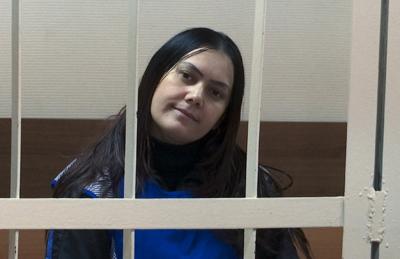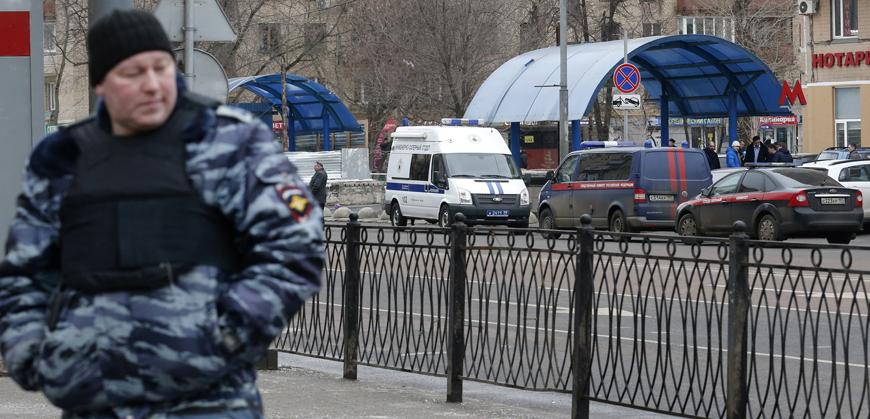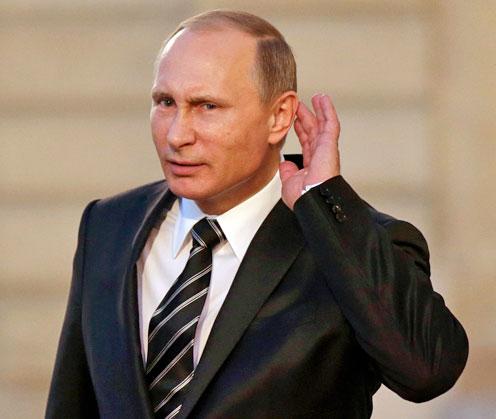You are here
Nanny who beheaded Russian girl cites revenge for Putin’s Syria strikes
By Reuters - Mar 03,2016 - Last updated at Mar 03,2016

In this frame grab made from the APTN footage, Gulchekhra Bobokulova from Uzbekistan appears in a court room in Moscow, on Wednesday (AP photo)
MOSCOW — A woman who brandished the severed head of a four-year-old girl in her care outside of a Moscow metro station has said she beheaded the child to avenge Muslims killed in the Kremlin's campaign of air strikes in Syria.
In video posted online on Thursday and circulated by several prominent bloggers, 38-year-old Gulchekhra Bobokulova from Muslim-majority Uzbekistan gave her first detailed explanation of an incident that state TV channels chose not to report.
"I took revenge against those who spilled blood," Bobokulova told someone asking her questions off camera. "Putin spilled blood, planes carried out bombings. Why are Muslims being killed? They also want to live."
She also said she had wanted to go to live in Syria but did not have money to do so. It was not clear when the video was filmed, but Bobokulova wore the same clothes as when she appeared in court on Wednesday.
A Kremlin spokesman said her remarks should be regarded as those of someone who is mentally unwell.
"You need to regard anything that such a deranged woman says accordingly," Dmitry Peskov, the spokesman, told reporters.
The Kremlin launched its campaign of air strikes in Syria on September 30 in support of President Bashar Assad, an intervention that altered the course of the conflict there.
Daesh said it downed a Russian passenger plane above Egypt on October 31, killing all 224 people on board, in revenge for Russia's Syria campaign.
Bobokulova, who was working as a nanny for a Moscow family, wandered around a street holding up the girl's head and shouting extremist slogans.
One witness told Reuters he heard her screaming about the murder of children in Syria.
A police source told the Interfax news agency on Wednesday the details of two men linked to an "international extremist group" had been found among her contacts.
However, publicly, investigators were quick to raise the possibility that Bobokulova was mentally ill and have made no mention of suspecting her of any terrorism-related offence.
Russian investigators played down her words on Thursday, suggesting in a statement that she was schizophrenic and that the motive offered by people suffering from the condition often differed from the real reason they had acted.
Related Articles
MOSCOW — Russian police wrestled to the ground a woman in a hijab brandishing the severed head of a child outside a Moscow metro station on
MOSCOW — Whatever effect Russia's air strikes are having on the ground in Syria, their impact at home is clear: They prove to Russians that
CAIRO — A Russian airliner carrying 224 people crashed in a mountainous area of Egypt's Sinai Peninsula on Saturday, killing everyone on boa



















